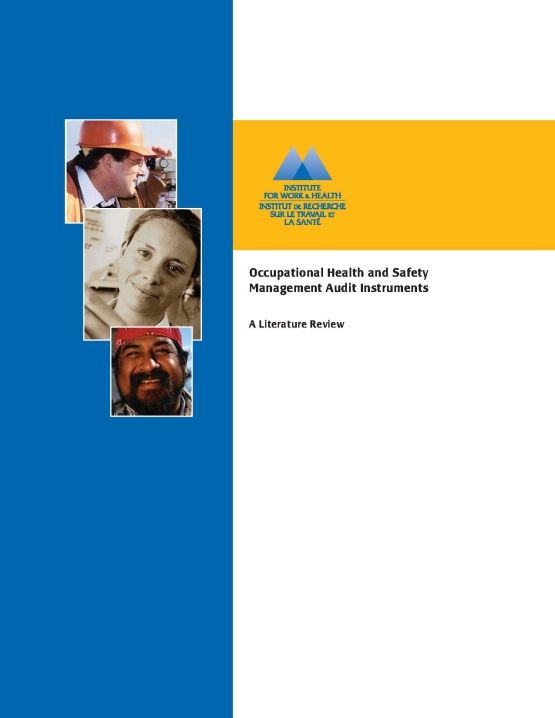Occupational health and safety (OHS) auditing is a systematic process for assessing compliance and verifying conformance with established guidelines or best practices in occupational health and safety. OHS audits are becoming an important tool as occupational health and safety management systems have matured and become integrated with modern quality initiatives. The growth in the number of international standards and agreements that incorporate environmental, health and safety aspects of production has also facilitated widespread development and use of OHS audits. Increasingly, as regulatory agencies move to performance-based approaches to improving OHS, auditing is seen as an effective method of ensuring compliance and improving the performance of prevention systems. Despite their widespread and expanding use in Canada and internationally, however, there has not been a synthesis of the literature on the effectiveness of OHS auditing or on the reliability and validity of audit instruments.
In response, the Institute for Work & Health began preliminary work in March 2005 to determine the feasibility, scope and potential study questions for a full systematic review of the literature on the effectiveness of OHS auditing. In performing a systematic review, clearly formulated questions are developed, and systematic and explicit methods are used to identify, select and critically appraise the relevant literature. This preliminary work found that a full systematic review on the effectiveness, reliability, or validity of OHS auditing was not appropriate given the state of the peer-reviewed literature. The evidence base addressing the study questions was scant, and many of the studies provided findings that were limited in external validity. In the end, IWH proceeded with a literature review to provide potentially useful information to stakeholders. Findings from this narrative review of the literature are included in this report.
